Cat Gets Revenge On Her Owner For Failing To Shower Her With Attention
Every cat owner is aware that their beloved pets have independent minds. You're blowing smoke if you think you can influence their behavior; they do what they want when they want.
Make that a permanent alteration to their behavior. You may become ecstatic if they appear to be listening to you and even following your instructions.
They promise not to do that ever again, but nope, there is no remedy for them, and there will never be. Even if they stop acting badly, it doesn't imply it will last forever.
It simply indicates that your cat gave in because, at that very moment, he or she felt like it. And there will come a time very soon when the cat will do as it pleases, simply to show who's boss.
Still, some cats are bossier than others. The entire house needs to be accessible at all times in case the cat needs to sneak a few fast pet treats in at an ungodly hour.
The OP of today's story failed to attend to the cat, and the result was glaring for all to see. The OP has an amazing midnight kitty with a single white spot on her chest.
Born mute, the cat was unable to meow or make any sort of sound at all, so she taught them what they lovingly called kitty sign language. Read on to find out OP's crime and how the cat handled it.
The OP writes
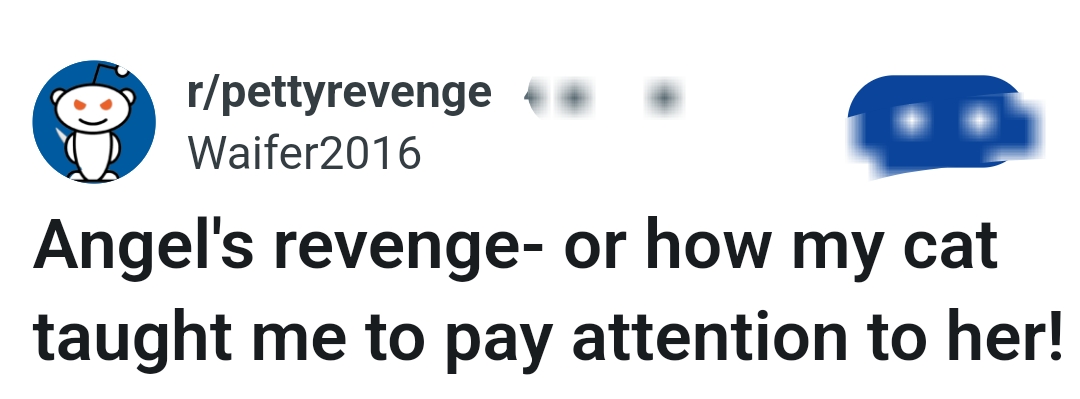
OP's cat, Angel, was an amazing midnight kitty with a single white spot on her chest

Understanding Feline Behavior
When we observe our pets displaying seemingly vindictive behavior, such as a cat 'getting revenge' on its owner, it's essential to consider the psychological principles at play. Dr. Emily Carter, a psychologist specializing in animal behavior, notes that cats are highly sensitive to their environments and can feel neglected or stressed when their needs for attention and affection are not met. This sense of betrayal might lead to behaviors that appear as revenge, yet are genuinely expressions of their emotional state.
Research published in the Journal of Veterinary Behavior highlights that animals can exhibit stress-related behaviors when they feel their social needs are not being satisfied. Understanding this can be crucial for pet owners who may misinterpret their pet's actions.
The cat went around OP's feet, bunting their leg with her head and ran over to pat the doors
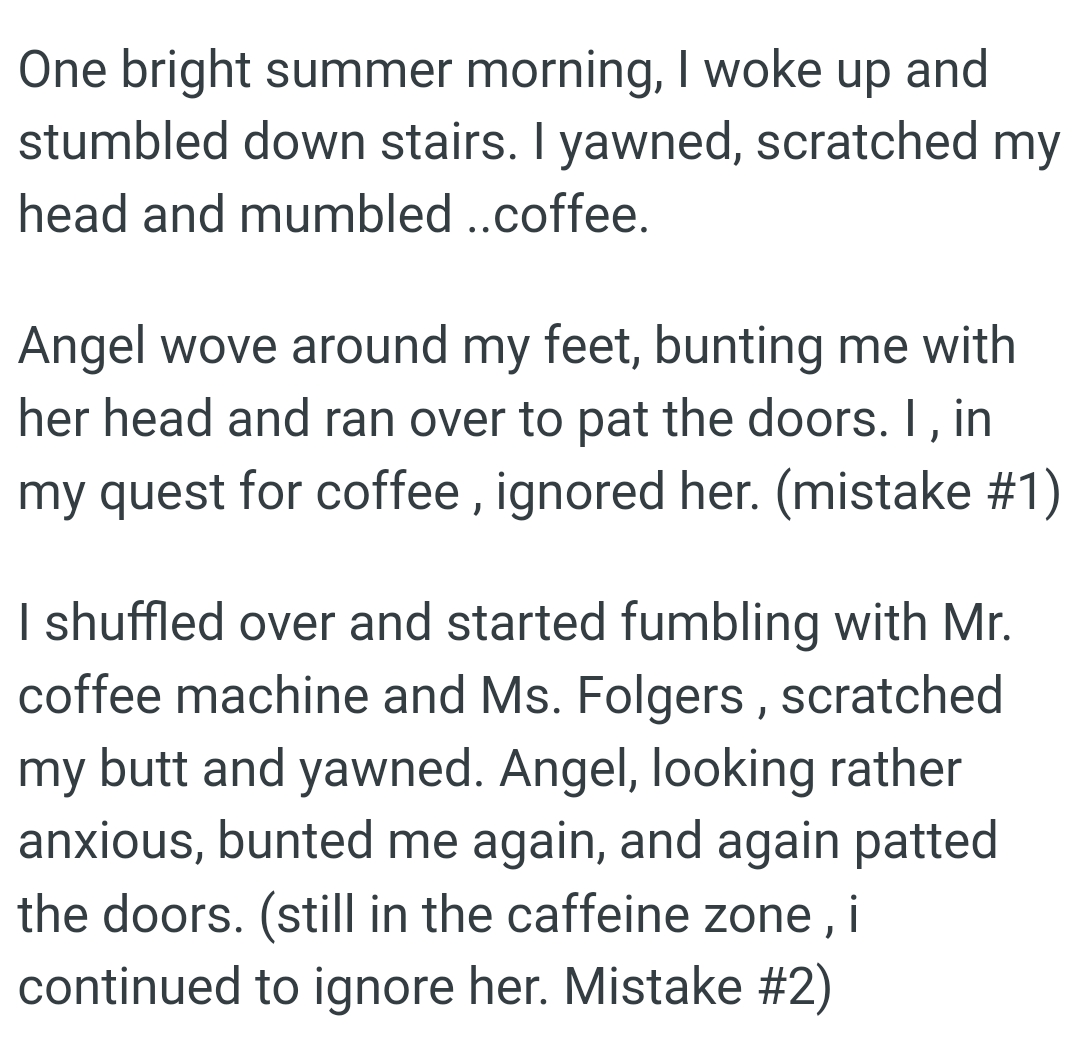
The OP watched the cat beat on the French doors while staring back in utter disgust
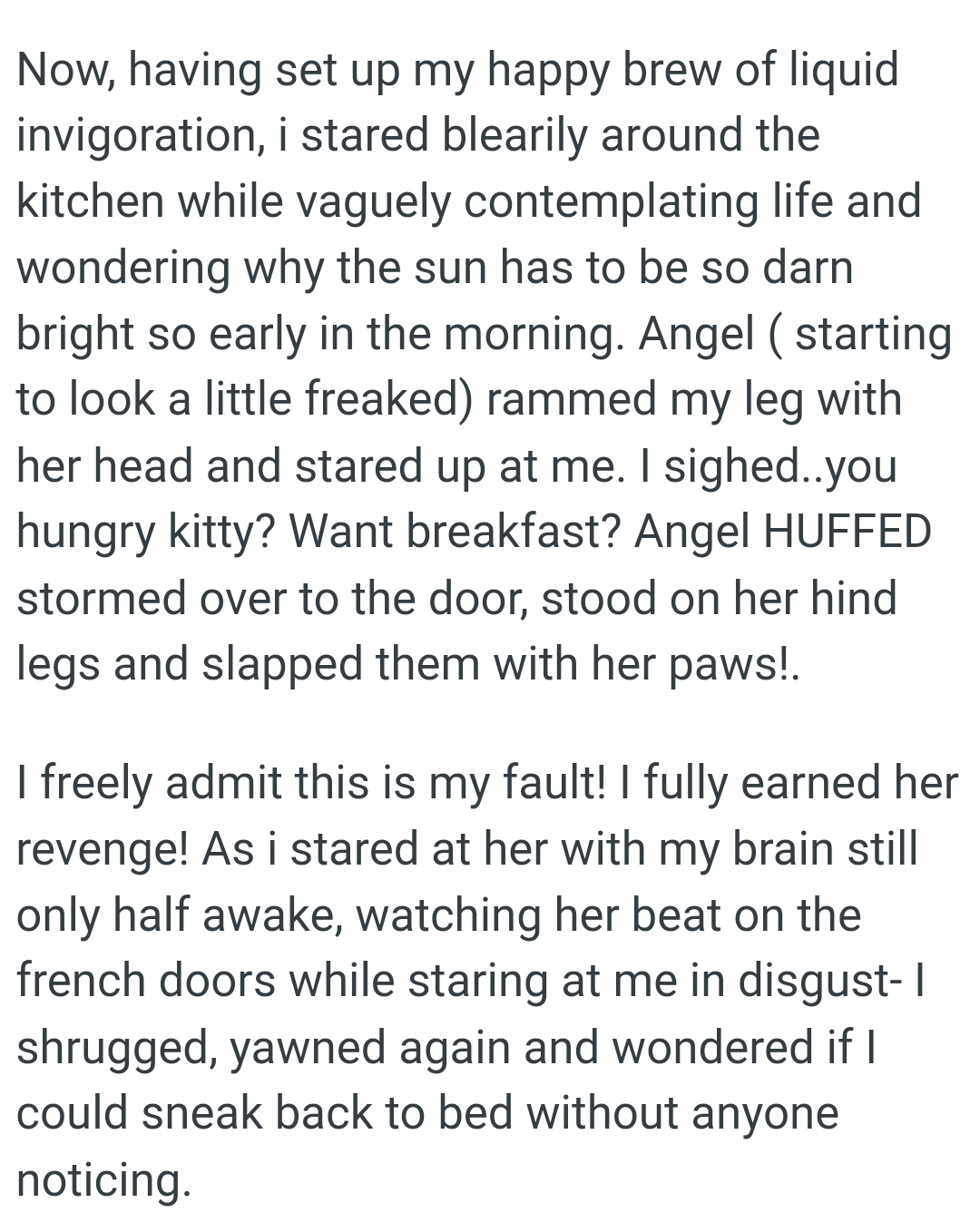
Having a cat can create a very fulfilling connection, as they instantly provide you with an outlet for play and enjoyment while also calming you. Cats are independent creatures that like to forage and explore on their own schedules, but they are also incredibly loving toward their owners and other individuals they can rely on.
Although their larger ancestors ruled the jungle, domestic cats unquestionably rule the home, and they take great pride in their position of authority. Sometimes, they even misuse it.
As usual, the comments rolled in, and we've gathered them for you to know what other Redditors thought about OP's story.
The cat stormed off to think evil thoughts about the stupid human she was forced to live with

Cats do have personalities, so they are like people
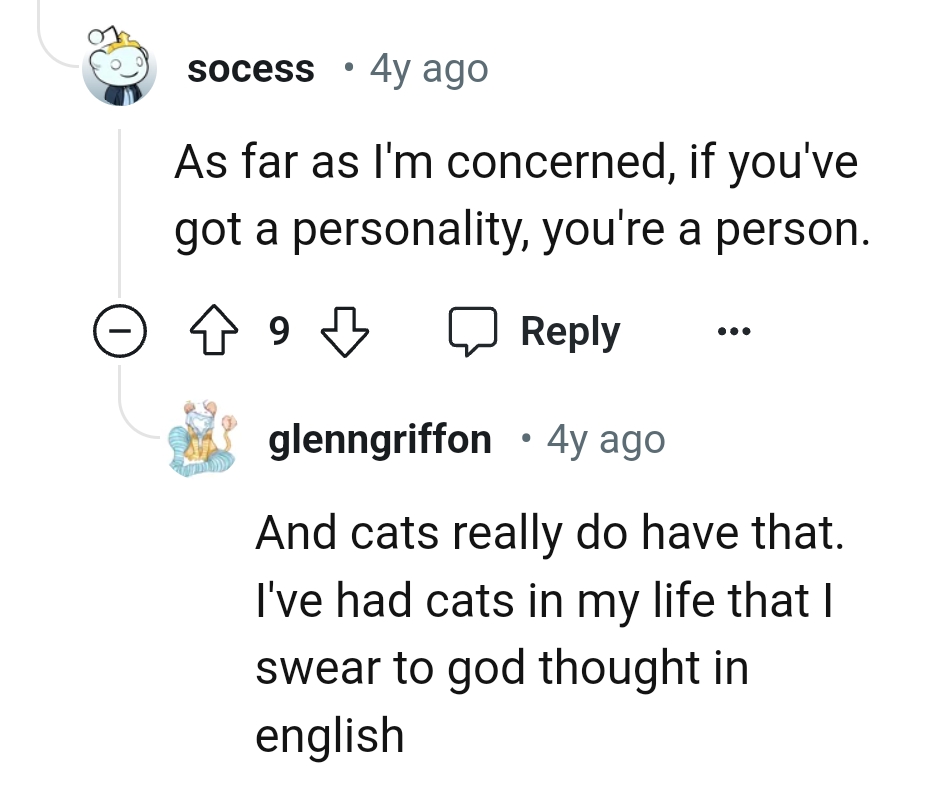
From a psychological standpoint, the concept of attachment theory can be useful in understanding the dynamics between pets and their owners. Just as humans develop attachment styles based on early interactions, pets can also form strong bonds with their caretakers. According to studies in animal psychology, when a pet feels ignored, it may react with behaviors that signal distress or discontent, as they are wired to seek comfort and connection. This is not revenge in a human sense, but rather a call for attention.
This Redditor likes the way OP told the story of the cat
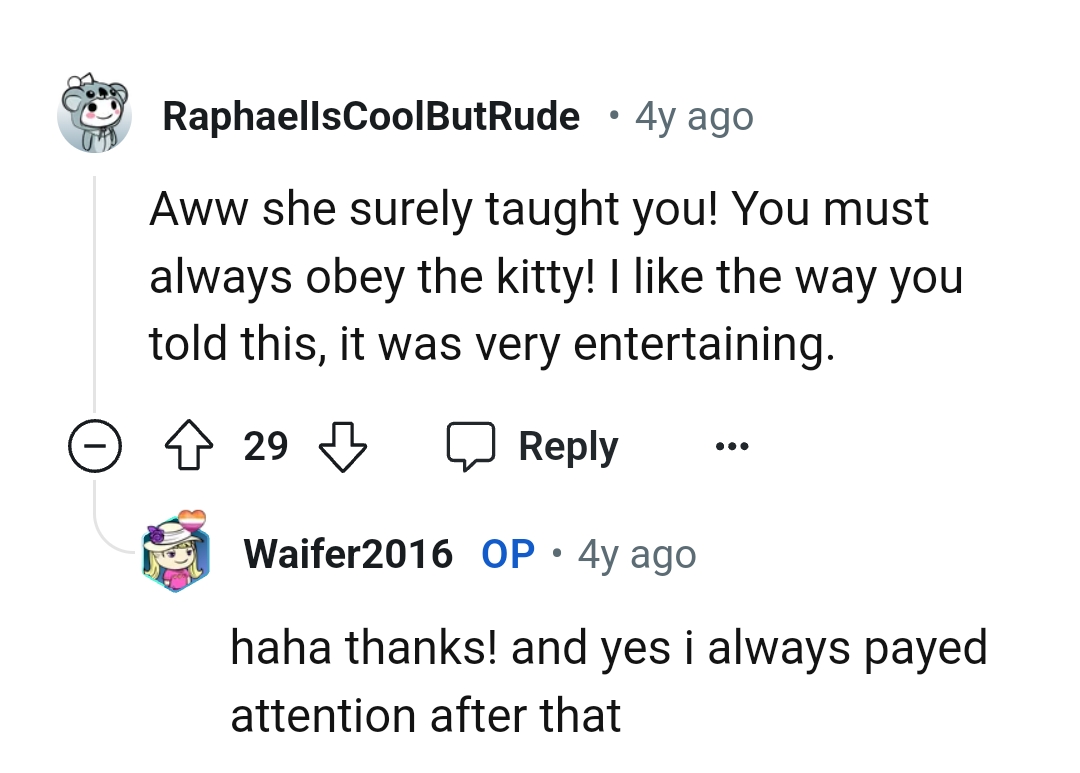
The OP says that the cat prefers to go outside to do her business
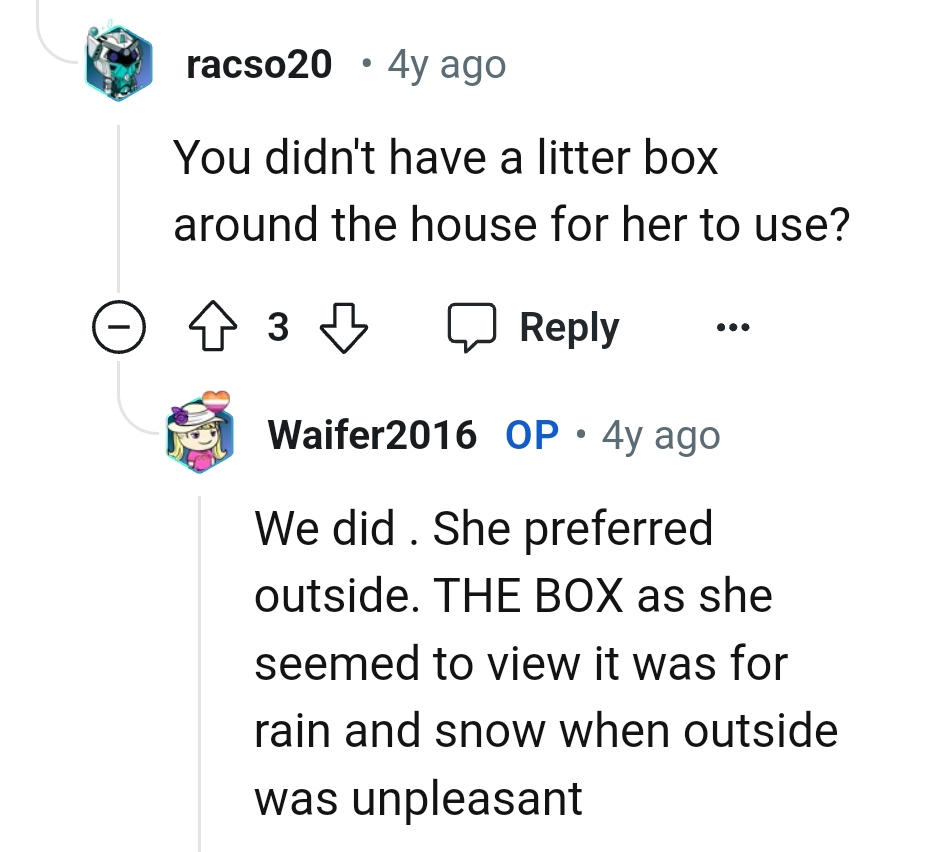
The Role of Attention in Animal Behavior
Attention plays a pivotal role in animal behavior, particularly in cats, who are known for their independent yet social nature. According to Dr. Ramani Durvasula, a clinical psychologist, "When pets do not receive adequate interaction, they may engage in behaviors that seem spiteful, but are actually cries for attention." Her insights emphasize that negative attention can sometimes reinforce unwanted behaviors, as pets learn that any form of attention, even negative, fulfills their needs. For more on this topic, visit her website at drramani.com.
Pet owners should therefore focus on providing positive reinforcement and consistent interaction to foster a healthier behavior pattern in their pets. Regular playtime and affection can significantly reduce instances of these 'revenge' behaviors, as noted by Dr. John Gottman, a renowned marriage researcher, who states, "Positive interactions are essential for building trust and connection, whether in relationships with people or pets." For further insights, check out gottman.com.
The OP refers to the cat as furry little people

This Redditor wants to know if the cat wanted to go outside for leisure
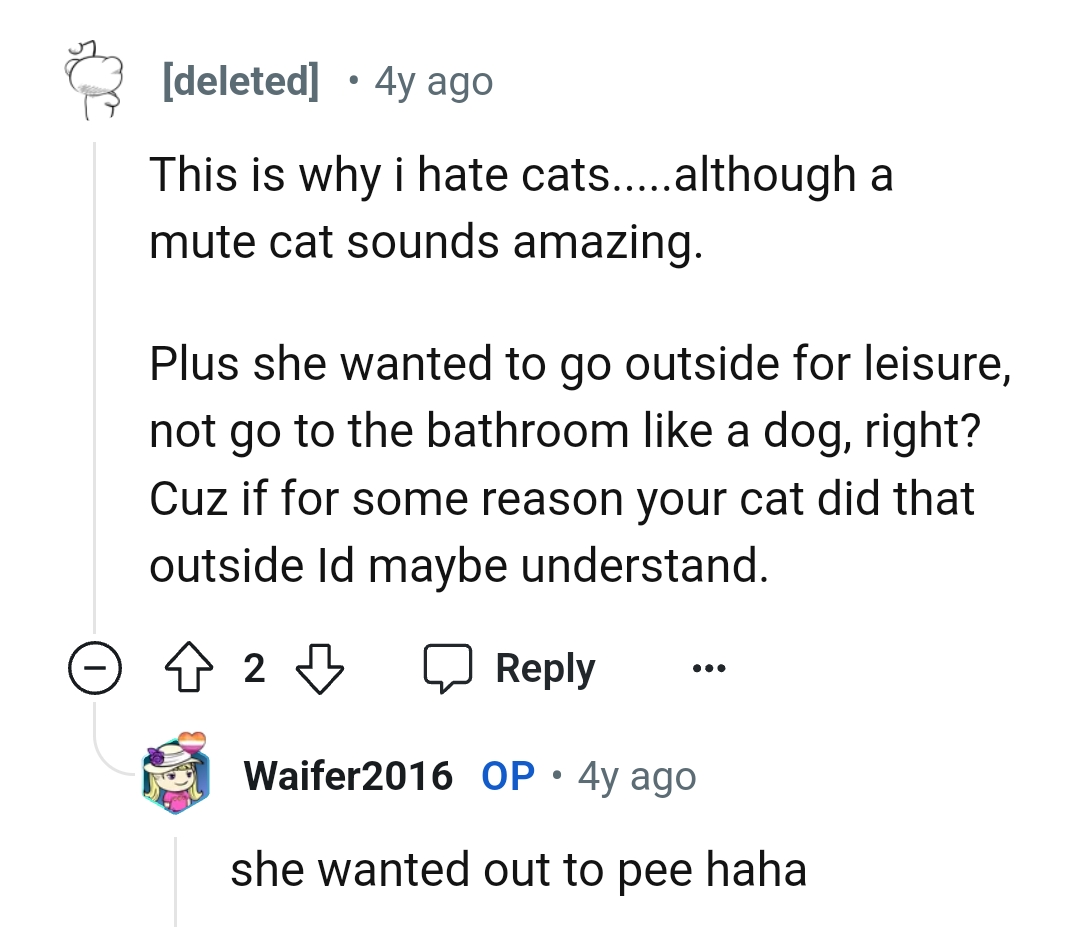
It goes without saying that the cat is the head of the household, and you comply with their guidelines at all times. You clean up after their hairball accidents, scoop their poop, and feed them when they scream for more food, even after they have already eaten.
After all, how could you say no to a face that adorable? Well, the OP did, and they paid the price for it.
Psychological Analysis
This behavior in pets often reflects a deeper emotional response rather than intentional malice. When animals feel overlooked or neglected, their natural instinct is to seek attention, sometimes through disruptive means. It's essential for owners to recognize these signs as a request for connection and to adjust their interactions accordingly.
Analysis generated by AI
Analysis & Alternative Approaches
Understanding the psychological underpinnings of pet behavior helps owners respond more empathetically to their animals. Properly interpreting these behaviors can lead to a stronger bond and a more harmonious living environment. According to Dr. Dan Gilbert, a renowned happiness researcher, “Pets are not just companions; they are emotional beings that require understanding and attention.” Recognizing the emotional needs of pets is vital for their well-being and the overall health of the human-animal relationship, as emphasized by Dr. John Gottman, a leading relationship researcher, who states, “Just like human relationships, the bond with pets thrives on emotional connection and mutual respect.”



